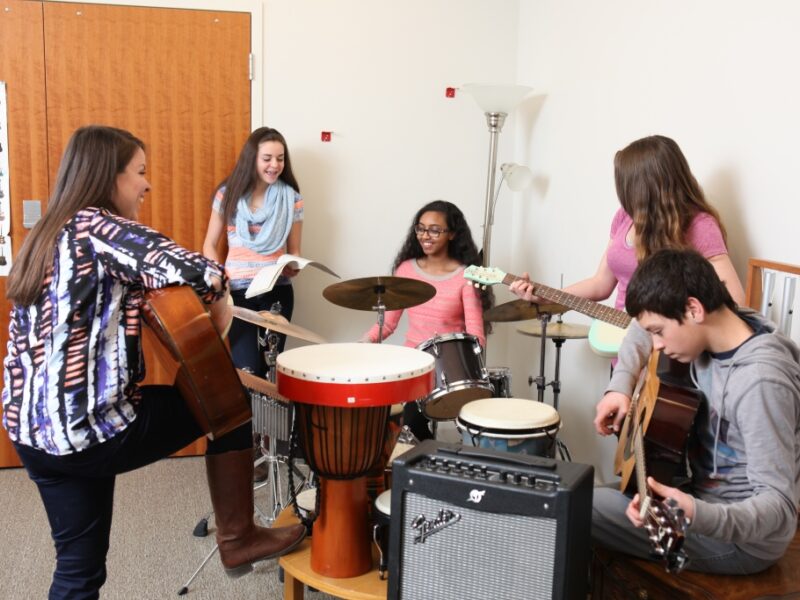Music Therapy Opens Minds to a New World

Sandra (not her real name) had a history of extensive substance abuse. Her behaviour while under the influence strained her relationship with her family and eventually she found herself in conflict with the law.
When she arrived at Lutherwood, we identified music therapy as part of her treatment program. Her interest in singing and recording a CD enabled the music therapist to engage her in intense, treatment-based work. She used song-writing to get to the root of why she used drugs. As she reached the end of her time with us, she composed a song for her mother as an apology for her behaviour, which became a big step toward reconciling their relationship.
Lutherwood works with youth tackling some very complex mental health challenges. As such, we recognize the value of a multidisciplinary approach to treatment plans - and music therapy often plays a key role. Music therapy is a process that uses music within a therapeutic relationship to work on non-musical goals such as self-esteem, expression and emotion regulation. A Music Therapist is trained to use different techniques to work with each individual’s strengths so that music therapy can be effective regardless of the individual’s experience singing or playing instruments. With a purposeful approach to each session, the Music Therapist can use treatment options including improvisation on a variety of instruments, lyrical analysis, lyric substitution, song writing, singing and using recording software to create songs. This allows music therapy to become a means to engage the individual in the therapeutic process as was the case with Sandra.

How can I use music at home to connect with my teen?
You can use music to reach your teenager. Take some time to listen to your teen’s preferred music. Talk to them to discover why they connect with a specific song or artist, and observe when they choose to listen to a specific song or type of music. All this can provide valuable insights and opportunities for you to build on your relationship with them.
How can I use music therapeutically for myself?
Pay attention to how you use music in your own life such as when you find yourself listening to music in a day and whether your musical choice changes depending on your mood.
- Try creating a playlist of music for specific purposes such as completing chores, waking up, cheering yourself up, or motivating yourself to do something you are not looking forward to.
- Consider attending an occasional concert.
- Consider taking music lessons.
- And after some practice, consider joining a community choir, band or orchestra.
You can learn more about music therapy from the Canadian Association Music Therapy or the Canadian Music Therapy Trust Fund. And, to find a music therapist in your area, try Music Therapy Ontario.
Instagram Feed
"As a newcomer, I encourage other newcomers not to be scared by job searching and to ask Lutherwood for help. There is no reason you cannot get a job if you work hard, are confident, and show your talents."












